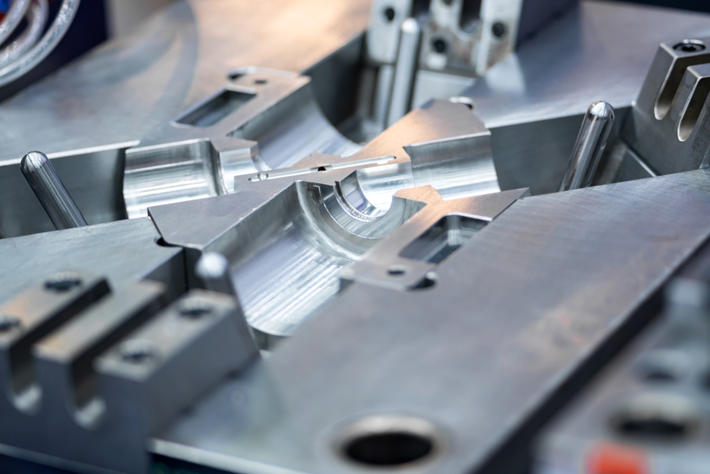Die casting is a metal casting process used for the production of complex and high-precision parts. The process involves the use of a reusable mold, called a die, which is often made of steel or other metals. Molten metal is injected into the die under high pressure, creating a precise and accurate replica of the die\’s shape.
Die casting is a versatile process that can be used to create a wide range of parts and components, from small and intricate to large and robust. The process is particularly well-suited to the production of parts that require tight tolerances, complex shapes, and high levels of repeatability.
One of the key advantages of die casting is its ability to produce parts with a high degree of accuracy and consistency. The precision of the die and the high pressure used in the injection process ensure that each part produced is identical to the last, with minimal variation in size, shape, or surface finish.
Another advantage of die casting is its speed and efficiency. The process is highly automated, with computer-controlled machines and robotic arms used to inject the molten metal into the die and remove the finished part. This means that large quantities of parts can be produced quickly and efficiently, reducing lead times and increasing productivity.
Die casting is also a cost-effective manufacturing process, particularly for large volume production runs. The reusable nature of the dies means that the initial cost of creating the mold can be offset by the savings in material costs and labor over multiple production runs.
Die casting is used in a wide range of industries, including automotive, aerospace, electronics, and medical devices. Parts produced using die casting can be found in everything from engines and transmissions to consumer electronics and medical implants.

One of the most common metals used in die casting is aluminum, due to its low melting point, high strength-to-weight ratio, and excellent corrosion resistance. Other metals commonly used in die casting include zinc, magnesium, and copper.
In conclusion, die casting is a versatile and efficient process for the production of high-precision parts and components. Its ability to produce consistent and accurate parts quickly and cost-effectively makes it a valuable tool for a wide range of industries and applications. Whether you\’re producing complex engine parts or intricate electronic components, die casting is a reliable and effective solution for your manufacturing needs.
-

- UAV deli za tlačno vlivanje iz magnezijeve zlitine
-

- Thixomolding kovinske zavore iz mangenzijeve zlitine pod pritiskom
-

- Ohišje za testo Thixomolding iz magnezijeve zlitine
-

- Magnesium alloy die-casting auto parts center control cover
-

- Kolesarski deli in komponente iz magnezijeve zlitine za otroška potisna kolesa
-

- OEM visokotlačni okvir iz magnezijeve zlitine za kolo

 0086-750-5616188
0086-750-5616188 +86 13392089688
+86 13392089688 sales@zhongmei-tech.com
sales@zhongmei-tech.com







